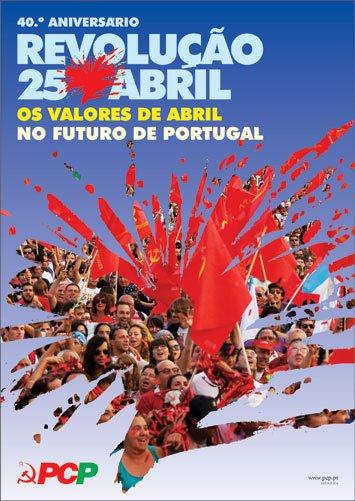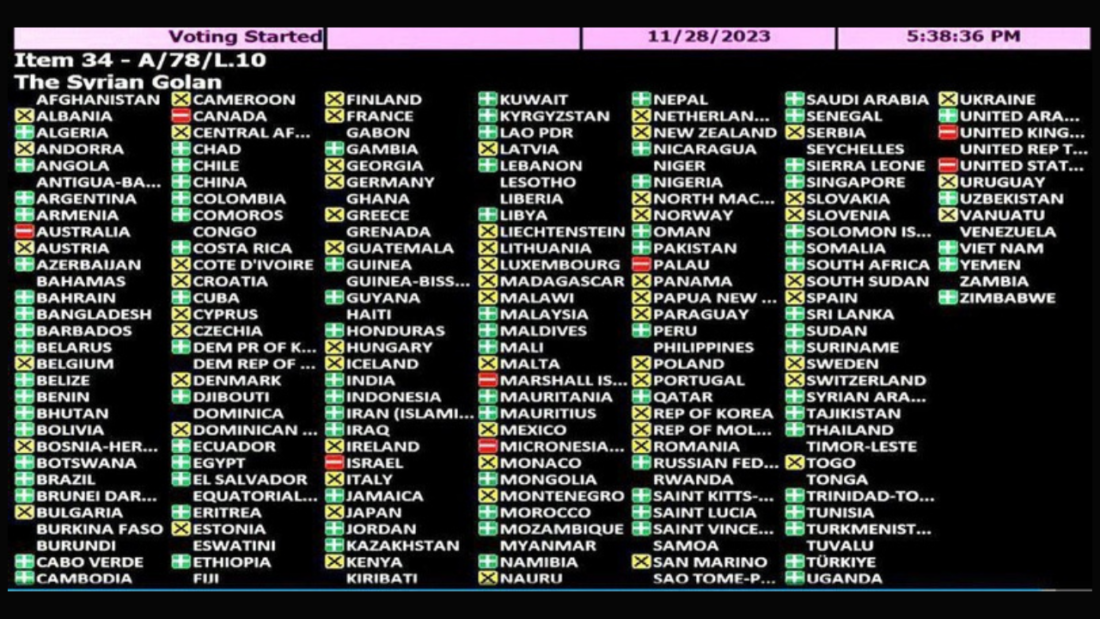
Speech of Stefanos Stefanou, member of the Secretariat and Political Bureau of AKEL, at the International Seminar on the “The Portuguese Revolution and the situation in Europe and the world after 40 years”
“AVANTE” Festival, 5th September 2014, Portugal
On behalf of the Central Committee of AKEL we address a comradely greeting to the leadership and members of the Portuguese Communist Party. We express our gratitude for your invitation to attend today’s seminar. Moreover, we express our gratitude for PCP’s consistent and principled position of support and solidarity with the struggle of the Cypriot people to end the Turkish occupation and for the reunification of our country.
On the occasion of the 40th anniversary of the Portuguese “Red Carnation Revolution” against the fascist regime of Salazar and Caetano, we pay tribute and homage to the Communists and democrats who fought against the dictatorship and paved the way for the liberation of the Portuguese people, but also the peoples of the Portuguese colonies in Africa.
The April Revolution is extremely timely and topical. It still remains a shining symbol in Portuguese history which continues, due also to your own struggles, to inspire your people and represent a glorious part of European history. The April Revolution, its essence and outcome, brings to the fore once again critical issues and questions which concern and affect the international workers movement and the Left.
It is again confirmed that the role of the Party of the Working Class is irreplaceable in the anti-fascist struggle, as well as how necessary but also complex is the policy of alliances of the Party of the working class with other socio-political forces. Furthermore, it is also clear that our types of Parties not only do not discredit the progressive and democratic changes that are achieved in the arena of capitalism, but on the contrary they must be in the front line of the struggles to gain and defend them. It is again confirmed that the ruling class, it’s most reactionary and conservative section, does not hesitate – when it deems necessary – to support or tolerate fascist forces and dictatorships. In addition, the role of NATO and the European Union in the suppression of the demands for national independence, popular sovereignty and socialism, which flared up following the overthrow of the dictatorships of Portugal, Spain and Greece, is also confirmed.
Over the last 40 years Europe seemed to have left behind coup d’états and dictatorships. Indeed, through the struggle of the working people, in combination with the pressure that the shining example of socialism in Eastern Europe exerted, it became feasible to gain concessions from the system and significant gains and rights for workers were achieved; to improve working people’s living standards; to enhance the welfare state; to make big steps forward in the position of women and to promote democratic reforms. The existence and strength of the socialist camp restrained for a period the military aggression of imperialism.
The people of Portugal can be proud that progressive reforms in the people’s interests had been incorporated and enshrined in the Constitution of the Portuguese Republic in 1976. The Constitution, born out of the Red Carnation Revolution, not only restored bourgeois democracy but paved the way for deep radical changes in society and the economy of the country, with the prospect of socialist transformation.
Despite the enormous obstacles the ruling class and the Right had raised, despite the definitive deviation of socialdemocracy, the progressive forces of Europe managed to push developments forward. This process was interrupted by the momentous setback that occurred as a result of the overthrow of socialism and the dissolution of the community of socialist states in the early 1990’s. The workers movement and the Left retreated dramatically. Working peoples gains and rights were targeted. Capitalism became even more aggressive through the imposition of its neoliberal version that intensified the class contradictions to the maximum. Privatizations, austerity, the abolition of the barriers to capital’s activity, the militarization of the continent and of international relations, found their expression in the course of the capitalist European integration highlighted and culminating with the Maastricht Treaty. For the first time since the Second World War had broken out in Europe and more specifically in Yugoslavia, where the European Union played a leading role in the breakup and eventually in the dissolution of the country.
Today, the crisis has exacerbated capitalism’s deadlocks. The binding of the EU to NATO, the militarism and interventionism of the EU’s common foreign and security policy is intensifying. The open EU-NATO intervention in Ukraine is also another outcome of this policy. Whilst it was considered that Europe had left fascism and dictatorship regimes behind, the EU itself is now openly supporting the fascist forces in Ukraine and the country’s new regime, which is attacking its own people and simultaneously persecuting by all means the communists of Ukraine.
At the same time, the EU, together with the IMF and the governments of the EU Member States, are imposing the most anti-peoples policies that have ever been implemented. Democracy itself, fundamental human rights and popular sovereignty are all victims of the Memoranda policies. Democratic freedoms and individual and civil rights today are being abolished on the pretext of terrorism and security, whilst in reality the target of the ruling class is the people’s movements and struggles. Europe has also witnessed developments such as the installation of Governments made up of technocrats, hence bypassing the people’s will (as in the case of .both Italy and Greece). We have even seen bourgeois civil rights even being abolished today, as in the case of the haircut/levy on bank deposits in Cyprus; the undermining of Constitutions or the attempts to revise them, as in the case of Portugal, eradicating progressive aspects and the values of April from the Constitution.
Comrades,
AKEL salutes the struggles of the Portuguese Communist Party and the class-orientated trade union movement against these machinations and your struggle in general to build an alternative, patriotic and left policy with socialism on the horizon. AKEL expresses its satisfaction because together with your Party, we share common assessments on the future of Europe and the international situation, as well as with regards the tasks of the Communist Parties. Our position that today’s capitalist integration of Europe cannot be the future of our peoples is also common, as well as our common position that the Group of the Left in the European Parliament, with its confederal nature and character, must have the capacity to unite and rally together the forces of the broader left in the struggle against neoliberalism, imperialism and NATO. Our position that we must defend and strengthen the cooperation between Communist Parties through the International Meeting of Communist and Workers’ Parties and our bilateral relations and initiatives is also common. The ties between our Parties are reflected in our joint actions.
In conclusion, permit me to also refer to another issue that is interrelated. 1974 was a tragic year for Cyprus. The coup d’état engineered and instigated by the USA and NATO, the coup d’état of the Junta of Greece facilitated Turkey’s expansionist plans, its illegal invasion and occupation of half of our country. This development has a historical link with Lisbon. It was here in Lisbon that in June 1971 at the NATO Summit Meeting the decision was taken that the Cyprus problem must be settled within the framework of the NATO Alliance to safeguard the interests of imperialism. This Lisbon NATO Summit gave the “green light” for the execution and implementation of the NATO plans against Cyprus to proceed.
Today Cyprus is continuing to struggle for its salvation. The Cyprus problem puts the international community, but also the European Union itself before its responsibilities, highlighting in this case as well the policy of double standards being pursued and which governs the EU’s foreign policy. How can the EU tolerate the illegal military occupation of the territory of one of its Member States by another state that is indeed a candidate for accession? Despite these difficulties, AKEL and the Cypriot people will continue to struggle for the restoration of the territorial integrity of Cyprus, for the reunification of our country and people, through the evolvement of the Republic of Cyprus from a unitary into a bi-zonal federal state with a single sovereignty, a single citizenship and a single international personality, into a demilitarised state that will ensure and safeguard the human rights and fundamental freedoms of the whole of the Cypriot people, Greek Cypriots and Turkish Cypriots.
With these thoughts in mind, we greet today’s International Seminar and wish to express our respect and esteem for the Portuguese fighters who made History in April 1974.




